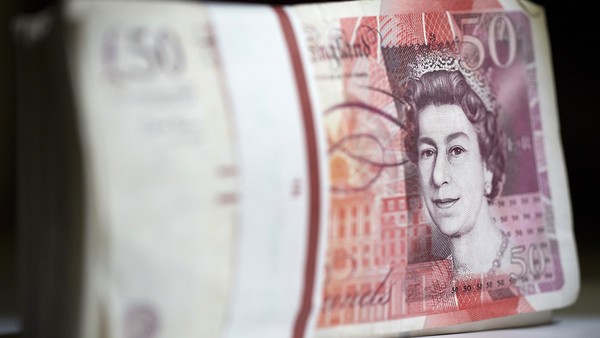The pound tumbled 11 per cent to its lowest level in more than three decades as the market awoke to the shock realisation that the Leave camp had upset the odds to score a stunning victory in the UK referendum on EU membership.
Dramatic falls in sterling peppered market trading early on Friday, wiping out earlier confidence from exit polls that suggested the Remain camp would prevail.
So acute was market uncertainty as early counts came in that sharp falls were quickly followed by equally severe rises, until the market lost faith in the pound with around half the votes counted.
A stunning slide in sterling at 3.40am London time saw the currency plummet below $1.40, and 20 minutes later it had breached $1.35 to levels last plumbed 31 years ago in the Thatcher-Reagan era. An hour later, the pound had found a new low at $1.3224 before coming off that level by 8am.
Steven Englander, head of G10 FX strategy at Citigroup, said: “This is major news that has hit the market and the market is trying to find the right price for sterling.”
Sterling’s gyrations added up to a record 13 per cent cent intraday range for the pound, smashing the 6.5 per cent from October at the height of the 2008 financial crash and the 4.9 per cent range on Black Wednesday in 1992.
Kit Juckes, FX strategist at Société Générale, said that despite the scale of sterling’s fall “there is a grave danger of further weakness in the weeks ahead. Indeed, the view of policymakers will be that a weaker pound is a vital economic shock absorber.”
Currency analysts at HSBC said Brexit was “a seismic and largely unexpected event which is likely to have a massive impact on financial markets”.
The vote to leave will sharpen focus on the UK’s problematic current account and budget deficits, they said. Concerns about the UK’s trade agreements with the EU would make it harder for the UK to finance these deficits, and sterling would act as “the adjustment mechanism”, HSBC predicted.
Before any results had been declared, the pound had risen above $1.50, a gain of 0.9 per cent in early Asian trading, its highest level of the year.
How global markets are reacting to UK’s Brexit vote

The pound falls, Treasuries soar and equities slide
Market confidence had been driven by a YouGov poll released after voting closed at 10pm on Thursday, which indicated Remain was on course for the victory the market had been pricing in since the start of the week.
But by midnight London time, traders began giving up their bullish support for the currency, pegging it back to below $1.48, as the first meaningful result of the night was declared — a narrower than expected Remain majority in Newcastle.
That wobble turned to outright fear as the pound plunged below $1.43 mark in a matter of seconds — a drop of 3.4 per cent — as the result from Sunderland was declared, showing a big majority for the Leave camp.
The pound continued to veer around, rising again to $1.4551, as the market waited anxiously for further results. As Hong Kong opened, the pound slipped below $1.40, down 6 per cent on the Asian session, while it was hammered against the yen, losing 13 per cent of its value at one point.
Yet such was the volatility in sterling trading that within minutes the pound was back up to above $1.45. Such rediscovered optimism proved shortlived, and the pound slid to $1.39 as a slew of results supporting the Leave campaign were declared.
The pound was also 8 per cent lower against the euro.
The yen, which opened the Tokyo session at ¥106 against the dollar surged in early trading to below ¥100 for the first time since November 2013.
Soon after, it retreated to trade at ¥102 as Tokyo neared lunchtime trading.
The euro, seen to be vulnerable if Britain voted to leave the EU, was down 3.2 per cent against the dollar, which also rose strongly against emerging market currencies.




No comments:
Post a Comment